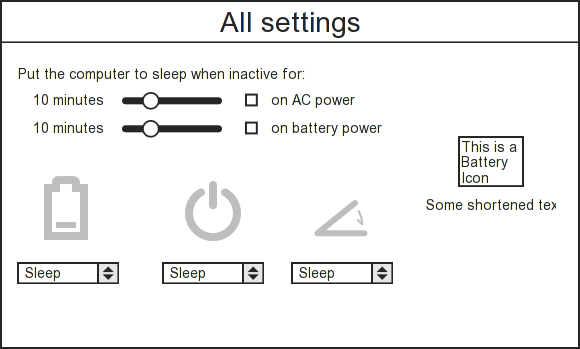Things have been awfully quiet since Zeeshan’s posted about the work we’ve been doing on DLNA support in Rygel. Since I’ve released GUPnP DLNA 0.3.0, I thought this is a good time to explain what we’ve been up to. This is also a sort of expansion of my Lightning Talk from GUADEC, since 5 minutes weren’t enough to establish all the background I would have liked to.
For those that don’t know, the DLNA is a consortium that aims to standardise how various media devices around your house communicate with each other (that is, your home theater, TV, laptop, phone, tablet, …). One piece of this problem is having a standard way of identifying the type of a file, and communicating this between devices. For example, say your laptop (MediaServer in DLNA parlance) is sharing the movies you’ve got with your TV (MediaPlayer), and your TV can play only upto 720p H.264-encoded video. When the MediaServer is sharing files, it needs to provide sufficient information about the file so that the MediaPlayer knows whether it can play it or not, so that it can be intelligent about what files show up in its UI.
How the DLNA specification achieves this is by using “profiles”. For each media format supported by the DLNA specification, a number of profiles are defined, that identify the audio/video codec used, the container, and (in a sense) the complexity of decoding the file. (for multimedia geeks, that translates to things like the codec profile, resolution, framerate/samplerate, bitrate, etc.)
For example, if a file is indicated to be of a DLNA profile named AAC_ISO_320, this indicates that this is an audio file encoded with the AAC codec, contained in an MP4 container (that’s “ISO”), with a bitrate of at most 320 kbps. Similarly, a file with profile AVC_MP4_MP_SD_MPEG1_L3 represents a file with H.264 (a.k.a. AVC) video coded in the H.264 Main Profile at specific resolutions upto 720×576, MP3 audio, in an MP4 container (there are more restrictions, but I don’t want to swamp you with details).
So now we have a problem statement – given a media file, we need to get the corresponding DLNA profile. It’s easiest to break this problem into 3 pieces:
Discovery: First we need to get all the metadata that the DLNA specification requires us to check. Using GStreamer and Edward’s gst-convenience library, getting the metadata we needed was reasonably simple. Where the metadata wasn’t available (mostly codec profiles and bitrate), I’ve tried to expose the required data from the corresponding GStreamer plugin.
DLNA Profiles: I won’t rant much about the DLNA specification, because that’s a whole series of blog posts in itself, but the spec is sometimes overly restrictive and doesn’t support a number of popular formats (Matroska, AVI, DivX, OGG, Theora). With this in mind, we decided that it would be nice to have a generic way to store the constraints specified by the DLNA specification and use them in our library. We chose to store the profile constraints in XML files. This allows non-programmers to tweak the profile data when their devices resort to non-standard methods to work around the limitations of the DLNA spec.
Matching: With 1. and 2. above in place, we just need some glue code to take the metadata from discovery and match it with the profiles loaded from disk. For the GStreamer hackers in the audience, the profile storage format we chose looks suspiciously like serialized GstCaps, so matching allows us to reuse some GStreamer code. Another advantage of this will be revealed soon.
So there you have it folks, this covers the essence of what GUPnP DLNA does. So what’s next?
Frankie Says Relax: Since the DLNA spec can often be too strict about what media is supported, we’ve decided to introduce a soon-to-come “relaxed mode” which should make a lot more of your media match some profile.
I Can Haz Trancoding: While considering how to store the DLNA profiles loaded from the XML on disk, we chose to use GstEncodingProfiles from the gst-convenience library since the restrictions defined by the DLNA spec closely resemble the kind of restrictions you’d expect to set while encoding a file (codec, bitrate, resolution, etc. again). One nice fallout of this is that (in theory), it should be easy to reuse these to transcode media that doesn’t match any profile (the encodebin plugin from gst-convenience makes this a piece of cake). That is, if GStreamer can play your media, Rygel will be able to stream it.
Apart from this, we’ll be adding support for more profiles, extending the API as more uses arise, adding more automated tests, and on and on. If you’re interested in the code, check out (sic) the repository on Gitorious.




